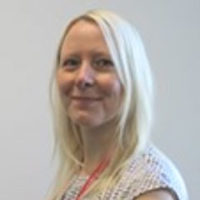This #Take5 is brought to you from …Karen Welton and Jennie Dettmer, facilitators of the ALDinHE N/I CoP (read on to find out more!). They are passionate about breaking down barriers to learning in higher education for neurodivergent students. If you are interested in making a difference and being part of this dialogue, they welcome you to join the crusade!
Cerebrum Celebration!
We are all different and our individuality is something to be celebrated! It is this individuality which makes the world so richly diverse, informing and altering our perceptions of anything and everything. Some differences are immediately apparent, but some are less obvious because we cannot see them. Neurodivergence is one of these less obvious differences and relates to the difference in brain function than those deemed as neurotypical (Figure 1). The term neurodivergent refers to Specific Learning Differences (SpLDs), the most common ones being Dyspraxia/DCD, Dyslexia, Asperger’s (ASD) and ADHD.
Figure 1: Umbrella image defining the key terms used to understand different brain functions
How does your brain work?
As Learning Developers, we are both passionate about supporting students to successfully navigate their way through higher education in the way that best suits their individual needs. But how can this be achieved unless we really understand the diverse ways that peoples’ brains work? With little or no neurodiversity training for HE staff in many UK institutions, this can be problematic, particularly as Disabled Students’ Allowance (DSA) funding was reduced in 2015 leaving learning development and academic staff supporting students that may previously have had an ‘expert’ on hand to help.
A call to action
We were intrigued to find out the thoughts of others, and in February 2021 the idea of creating an online community centred around neurodiversity and inclusivity was born – The Association of Learning Developers in Higher Education (ALDinHE) Neurodiversity and Inclusivity Community of Practice. By the time we held our first meeting on the 9th June 2021, 131 people had expressed an interest to join the community! We never anticipated there would be so many like-minded people who were keen to discuss this topic. We compiled Terms of Reference for the community (Figure 2) and circulated this for comment and feedback. It was important to us that the community made decisions collectively and there was no hierarchical structure within. We made it clear at the outset that we were not experts in the field of neurodiversity and inclusivity; we initiated this community because of a passion and interest and were keen to learn more through discussions, reflection, research and the practice of others.
Figure 2: Terms of Reference for the ALDinHE Neurodiversity & Inclusivity Community of Practice
Our journey, our vision…
As a community we have enjoyed five informative, engaging, rich, and lively discussions so far. We have met so many interesting, knowledgeable and courageous people, and learnt more than we could have ever imagined. The community has discussed the use of terminology, identity, current training available within various UK & international HE institutions, education & engagement – why the need for this / how it could be achieved, and compiled a library of relevant research sources. Ultimately, we would like to ensure that through easily accessible resources, staff working within the education sector (HE to begin with), understand what it means to be neurodivergent, how neurodivergent brains learn, and how staff can best support neurodivergent students to thrive, both academically and personally. Our vision is to ensure all neurodivergent students exit their HE journeys feeling confident, autonomous and immensely empowered. If you are interested in joining us at our next ALDinHE Neurodiversity and Inclusivity Community of Practice meeting and being part of this dialogue, please click here to complete our expression of interest form. We look forward to welcoming you!
References
Resnick, A (2021) What does it mean to be neurodivergent? Available at: https://www.verywellmind.com/what-is-neurodivergence-and-what-does-it-mean-to-be-neurodivergent-5196627 (Accessed: 8 November 22).
Bios
Picture: Karen Welton
Karen is a Learning Development Advisor at Arts University Plymouth. She has a particular interest in dyslexia and is passionate about raising awareness of neurodiversity from a 360° perspective, not just the challenges which are often fixated upon within the educational and wider community. The subject of her Masters thesis was exploring her understanding of dyslexia, her role, and the skills she needed to successfully support students with dyslexia at a HE level. She documented her interactions with dyslexic students during a six month period and reflected on her experiences of supporting them using autoethnography as both methodology and method, responding to these reflections and research through poetry. She is currently running a community of practice for dyslexic students at AUP to build confidence and share experiences and strategies to help positively influence their learning journey through HE.

Picture Jennie Dettmer
Jennie is an Academic Support Tutor at the University of Hertfordshire. Her background is in EFL and ESOL support, from where she developed an interest in supporting students with learning differences. After gaining her diploma in Teaching Learners with Dyslexia, she moved into supporting students in Higher Education. She has recently gained her MA in Education (SEND and Inclusion) and the focus of her dissertation was attitudes towards dyslexic students and the adjustments had been made to online teaching sessions during the pandemic. Another of her interests is around accessibility, which formed the focus of her Senior Fellowship of AdvanceHE application.
